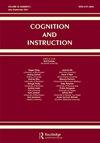包容性的未来创造:在城市中学与当地利益相关者建立一个文化响应行为支持系统
IF 2.3
1区 心理学
Q2 PSYCHOLOGY, EDUCATIONAL
引用次数: 2
摘要
本文介绍了一项名为“学习实验室”的形成性干预研究,该研究促进了美国一所城市中学文化响应性行为支持系统的集体设计。学习实验室联合了家长、教师、支持人员、教育领导和研究人员,特别是那些历史上被排除在学校问题解决活动之外的人,以解决他们在学校纪律中面临的种族不成比例的内在矛盾。学习实验室的成员挖掘并分析了学校的纪律系统及其活动和干扰,并设计了一个新的全校范围的行为支持系统,以响应学校社区的不同经验、观点、实践和目标。对与新系统开发相关的学习实验室流程进行了定性分析。成员们审查了现有纪律制度的成果,确定了内部矛盾的日常表现,并集体设计了一个对文化敏感的制度。该研究展示了系统设计和转型过程的“如何”,有助于对作为集体学习形式的教育变革有更深的理解。该研究演示了次要工件(系统映射)如何促进从问题定义到设想新的可能性的移动。鉴于自上而下的教育政策无法影响学校持续的系统转型,学习实验室提供了一个生态上有效的集体知识生产和系统设计过程,展示了从头开始转变边缘化系统的可能性,并集体将学校设想为团结、解放和创新的空间。本文章由计算机程序翻译,如有差异,请以英文原文为准。
Inclusive Future Making: Building a Culturally Responsive Behavioral Support System at an Urban Middle School with Local Stakeholders
Abstract This article presents a formative intervention study, called Learning Lab that facilitated the collective design of a culturally responsive behavioral support system at an urban middle school in the United States. Learning Lab united parents, teachers, support staff, education leaders, and researchers, specifically those who have been historically excluded from schools’ problem-solving activities to address an inner contradiction that they face—racial disproportionality in school discipline. Learning Lab members excavated and analyzed the school’s discipline system with its activities and disturbances and designed a new school-wide behavioral support system that is responsive to diverse experiences, perspectives, practices, and goals of their school community. A qualitative analysis of the Learning Lab process was conducted related to the development of the new system. Members examined outcomes in the existing discipline system, identified daily manifestations of the inner contradiction and collectively designed a culturally responsive system. The study showed the “how” of a systemic design and transformation process that helped develop a deeper understanding of educational change as a form of collective learning. The study demonstrated how a secondary artifact (system mapping) might facilitate movement from problem-definition to envisioning new possibilities. Given the inability of top-down education policies to impact sustained systemic transformation in schools, Learning Lab provides an ecologically valid collective knowledge-production and systemic design process that shows the possibilities of transforming marginalizing systems from the ground-up and collectively envisioning schools as spaces of solidarity, emancipation, and innovation.
求助全文
通过发布文献求助,成功后即可免费获取论文全文。
去求助
来源期刊

Cognition and Instruction
Multiple-
CiteScore
7.90
自引率
12.10%
发文量
22
期刊介绍:
Among education journals, Cognition and Instruction"s distinctive niche is rigorous study of foundational issues concerning the mental, socio-cultural, and mediational processes and conditions of learning and intellectual competence. For these purposes, both “cognition” and “instruction” must be interpreted broadly. The journal preferentially attends to the “how” of learning and intellectual practices. A balance of well-reasoned theory and careful and reflective empirical technique is typical.
 求助内容:
求助内容: 应助结果提醒方式:
应助结果提醒方式:


